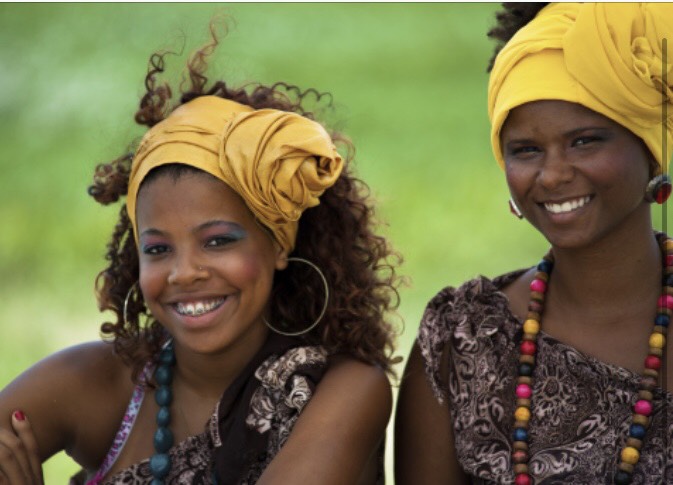
The term Afro-Latinx is more than just what we look like or what you see. Although that plays a major key in our identity and who we are. A large aspect of our identity is our language.
Our native tongue, how we speak, dialects and our pronunciation. In Latin America some may think the native language is only Spanish, that’s not just it. We have Hondurans that speak Garifuna.
If we travel to Brazil some speak Portuguese. Haitians speak Creole and French. If we stopped in Panama and you visit the city of Colon you will hear the different Caribbean accent & dialect.
Don’t check us into one box we are versatile.
This project will, in fact, highlight several different Afro-Latinx who is multilingual.
One thing to note about learning languages some were self -taught, studied and some were born knowing the language.
MEET WHITNEY
BRAZILIAN / MEXICAN / AMERICAN
Languages: Portuguese, Spanish, and English

WHITNEY’S STORY: I wasn’t born speaking these three languages. Spanish was something I picked up on because it was spoken to me and I listened to Spanish music and also watched telenovelas. I didn’t reach fluency in it until I was around 14.
I began speaking Portuguese around the age of 12. I was not raised speaking these languages perfectly because that’s just not how my parents chose to raise me. It is very important or Latinos to speak the language of their culture, but I am not one to judge if they just weren’t raised speaking it like me. I believe there is not so much a stigma that minorities don’t speak other languages, but that we aren’t as educated, which is 100% not true.
My advice to someone learning a language outside of their culture is to learn about the culture. It’s extremely important to learn and gain respect for the culture that you are learning the language of. I also think it’s important for people to understand the wide variety of cultures and different languages spoken in Latin America. There seems to be a big misunderstanding that we all speak Spanish and that the culture in every Latino country is the same.
@americanmasterpiece
MEET VICTORIA
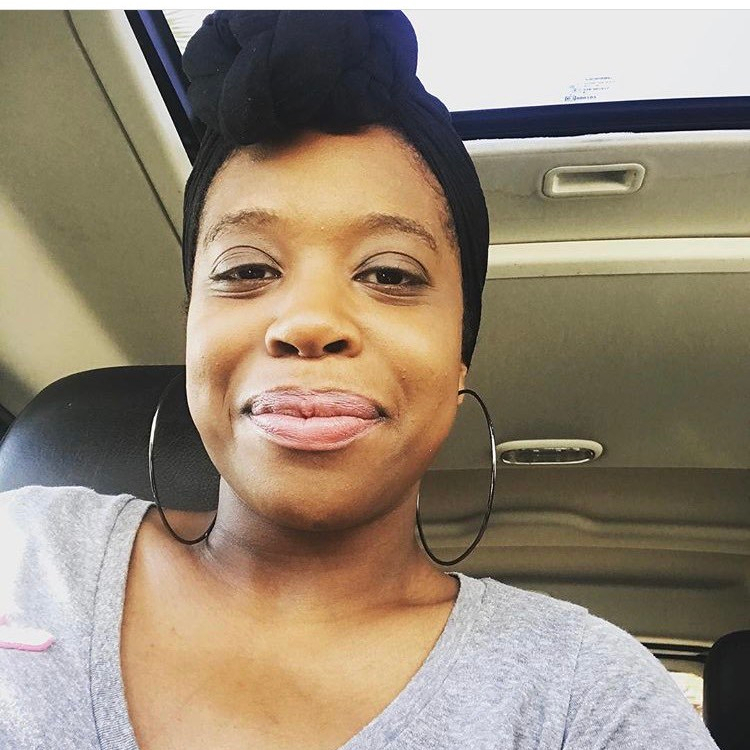
Victoria’s Story: I grew up in New York City so I learn very quickly how to pick up and learn because of my grandparents on both sides. Also, relatives that come by from West Indies. I believe it is important for people of color to learn more than one languages it will lead to breaking stereotypes, barriers, and stigmas. I learn in this racist society especially in the Latino community the darker you are the bolder you are.
White Latinos often speak Spanish in front of you as a form of disrespect. I hit them back with the response to leave them speechless. I’ve walked away from them countless times as this happened to me. I believe the more than one language will be our superpower among this racist society as an Afro-Latinx.
There is a stigma because folks think you are not enough of that particular culture which that language represents. Especially when dealing with older generations, they find it disrespectful not speaking culture language. The older generation uses the term to become Americanized. Stigma also came from our parents by not continuing the traditions or the history of our ancestors.
We have to be the generation to break those stigmas. My advice to someone wanting to learn languages does it, especially when traveling around the world.
It breaks you from your comfort zones. I am living proof of it because not only am I Afro-Latina. I am also Afro-Caribbean. I learn the different dialects of each island and as well as African dialect. I believe this will help connect us to the African Diaspora.
@victoriajenn_
MEET KEYANNA
HONDURAN / AMERICAN
Languages: English, Spanish, and Garifuna
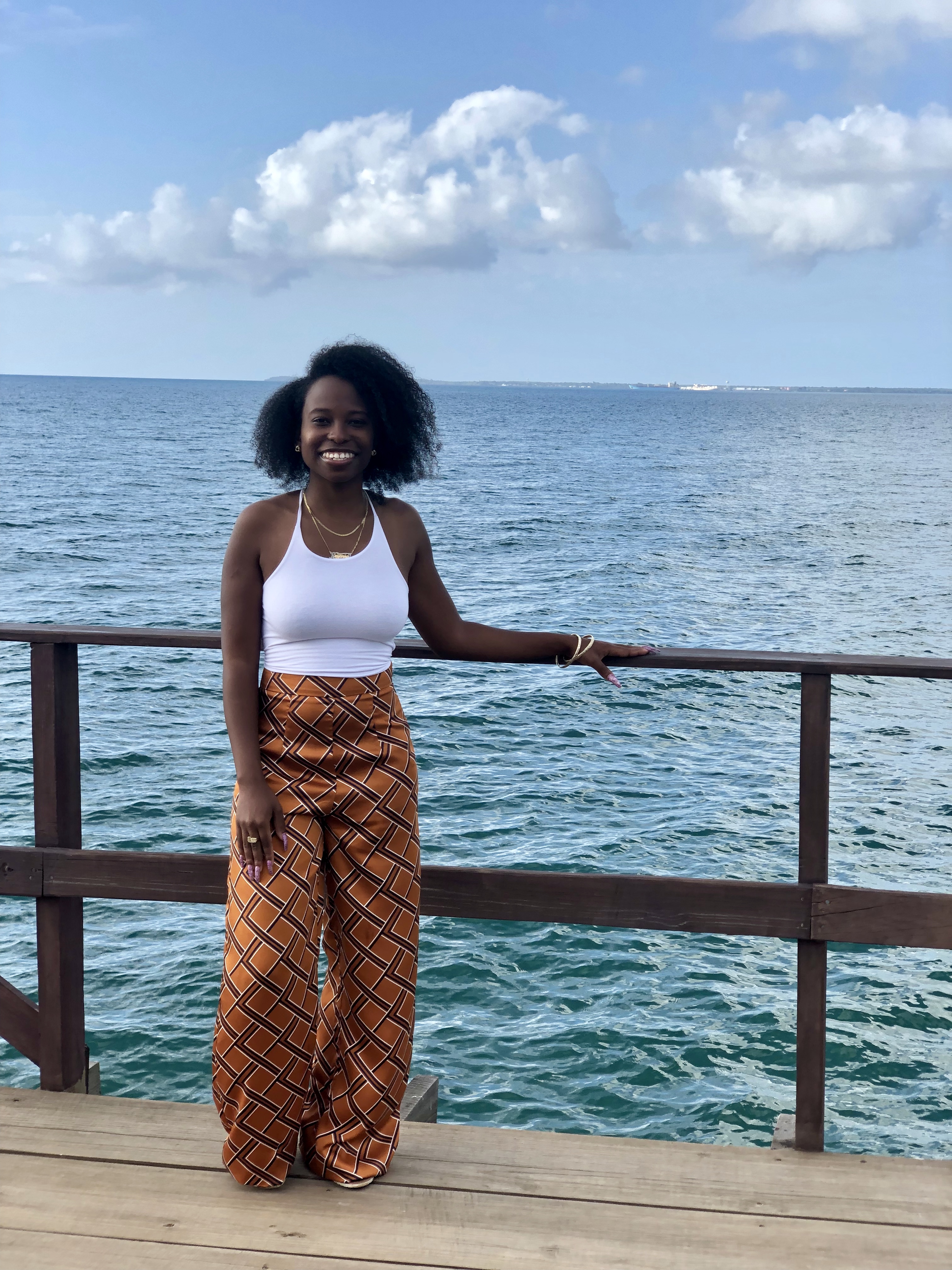
Keyanna’s Story: My first language was Spanish. I was not born knowing all three languages, in fact, I was born knowing not a single language. I learned Spanish when I was learning how to talk, Spanish was the only language spoken to me and I was living in Honduras briefly in my early childhood.
I started elementary school back in Honduras and finished off in NYC. I learned English when I came back to the states by just being around other children. At the time I had two Latina friends one Salvadoran and one Cuban/Dominican. They both knew English and Spanish so I believe they helped me. My mother also would read to me in English so I learned how to read and write in pretty much six months.
Garifuna is my least fluent language, I always learned words growing up and when I speak it I still mix in either Spanish or English. It’s a working progress and I hope to be fluent in it one day. I was taught most words from either my great grandmother, context clues and on my own through online resources. I have a notes section on my phone with Garifuna words and their English words to help me. I practice Garifuna songs so I can grow my vocabulary and pronunciation because it’s not an easy language to learn.
I do think it’s important for people of color to learn more than one language. It opens many doors as far as networking, jobs and even being able to travel if possible. You never know when knowing another language can come in handy so download that Duo Duo Lingo app.
As someone that is still learning their native language and practicing learning another native language (Yoruba) my advice is if at all possible find someone that speaks the language fluently so they can help you practice. I have people that will speak to me in either language to help me learn sentences and even new words I didn’t know of. Listen to songs in the language and if you can find out the lyrics of the songs and definitely have a notes section of your phone with the English meaning of the word.
@mellymoyanna
MEET RAYDIRY
DUTCH – CARIBBEAN / DOMINICAN
Languages: Spanish, Papiamentu, English, Dutch, Portuguese, Italian, Croatian and French.
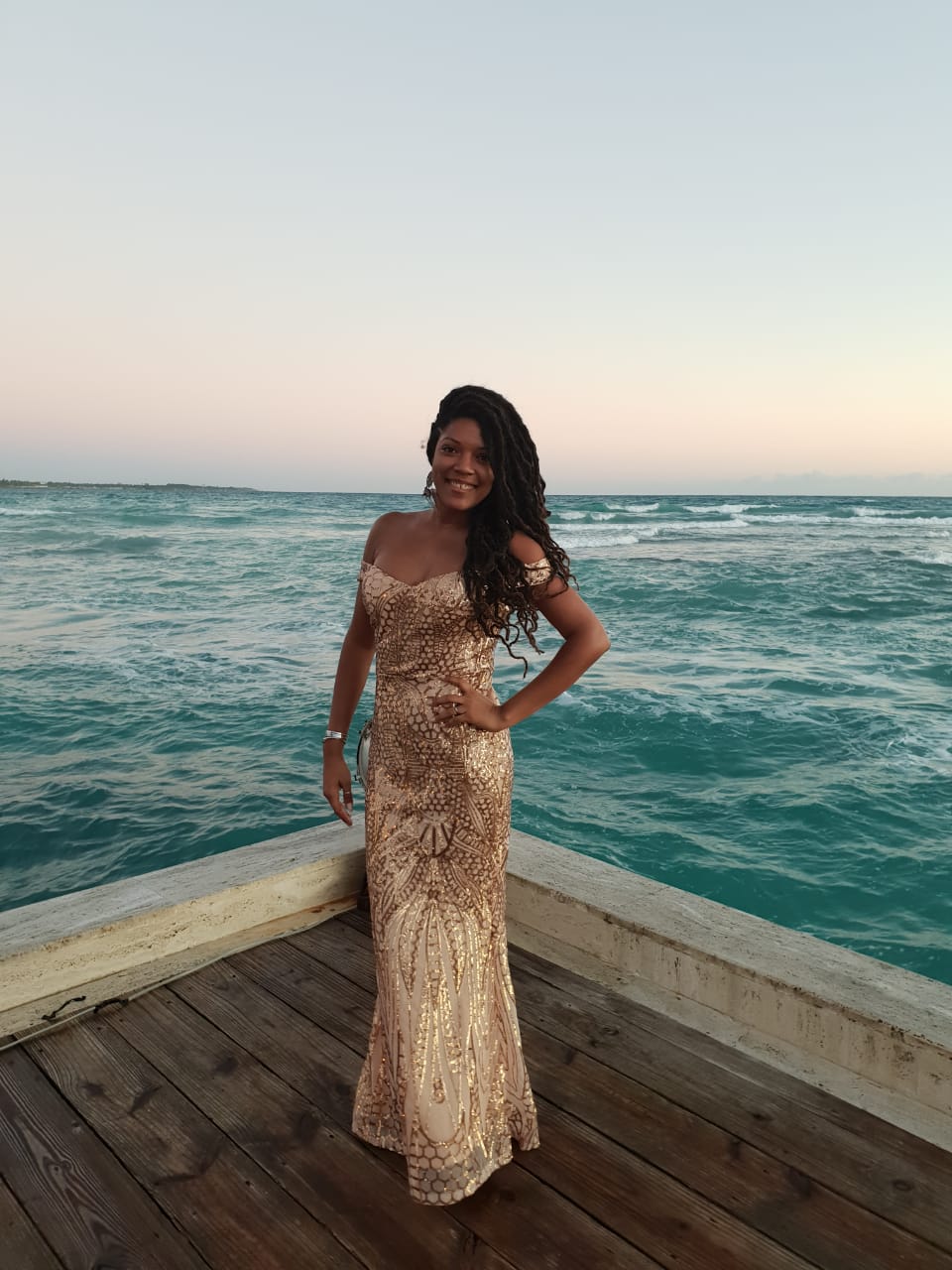
Raydiry’s Story: Spanish and English were my first languages but I consider Papiamentu and Dutch also to be my mother tongues as I have been exposed to them from a very young age. I was born on a Dutch island where Dutch and English is spoken so my father and family spoke English to me and my mom is from the Dominican Republic and she has always spoken Spanish to me. At the age of two, they separated and my mom and I moved to Curacao another Dutch island where Dutch and Papiamentu are spoken. So at just two years old, I was exposed to Papiamentu. The other languages I learned in high school while living in Brazil, Croatia or in The Netherlands attending university.
I think it is important for everyone to learn languages. It makes communicating, understanding nuances, jokes, folklore, intentions so much better. I think it is important that people learn how to speak the languages of their heritage/ancestors. This brings families closer and traveling across the diaspora you can learn and pass information/customs from generation to generation in a beautiful way.
I believe that most minorities speak their languages at home or keep their culture alive through various forms of expression: language, food, music, clothing, religions, customs etc. People from the USA do have the impression that Americans only speak English unless they are first generation immigrants. The only way to fix the stigma would be to be a proud and unapologetic immigrant/descendant.
Celebrate that you are sun-kissed, that your nature spices up this world and that your hips swing to the lively rhythms originated or inspired from mother Africa to free the soul). Speaking several languages opens doors and brings down intercultural barriers. It brings people closer and you learn how to think and see things from more perspectives. It makes you more flexible while exploring. Also, the heartwarming smiles and reactions of the people that you meet when you travel and make an effort to speak their language are priceless.
@raydirywanders
MEET ANA
CANADIAN / DOMINICAN
Languages: Spanish, French, and English
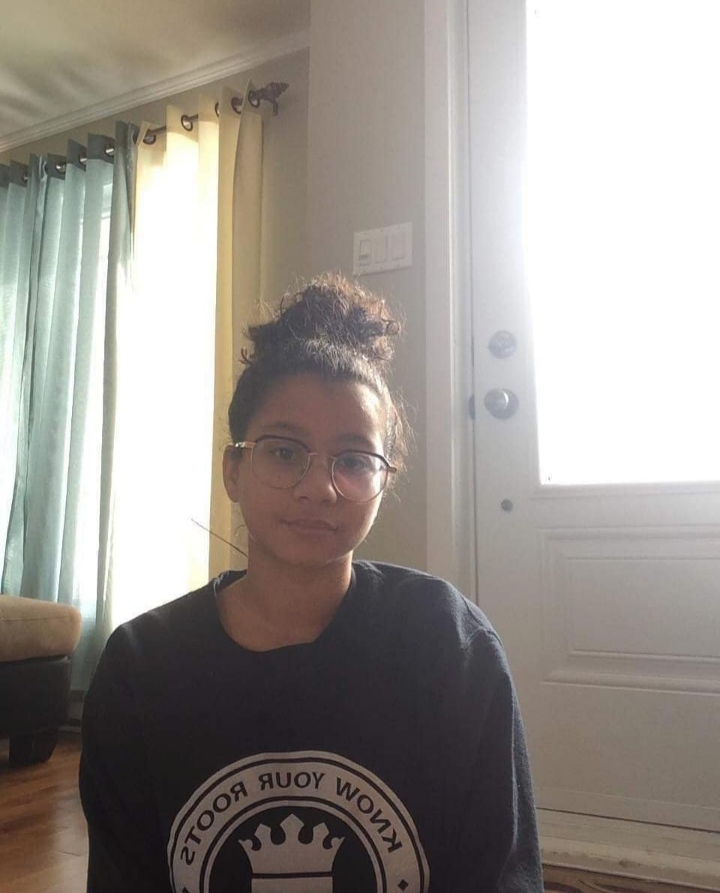
Ana’s Story: Spanish was the first language I learned. I learned Spanish at home. I learned French when I started school and English in grade 5th – 6th.
Learning new languages gives more opportunities in life, it opens many doors and it is amazing. Now days being able to speak other languages can bring you to many places.
When a person doesn’t know their mother tongue, people of the same ethnicity group won’t see them as their own. We can fix that by teaching our children how to speak and write in that language, but we have to be consistent with it. At the end of the day, the more languages we know the better it is because it gives us more opportunities.
My advice to those interested in learning languages outside your culture is to listen to music and to watch series or movies in the language they want to learn
@anaa.vct
MEET WENDY
Honduran
Languages: Spanish, English, and Garifuna
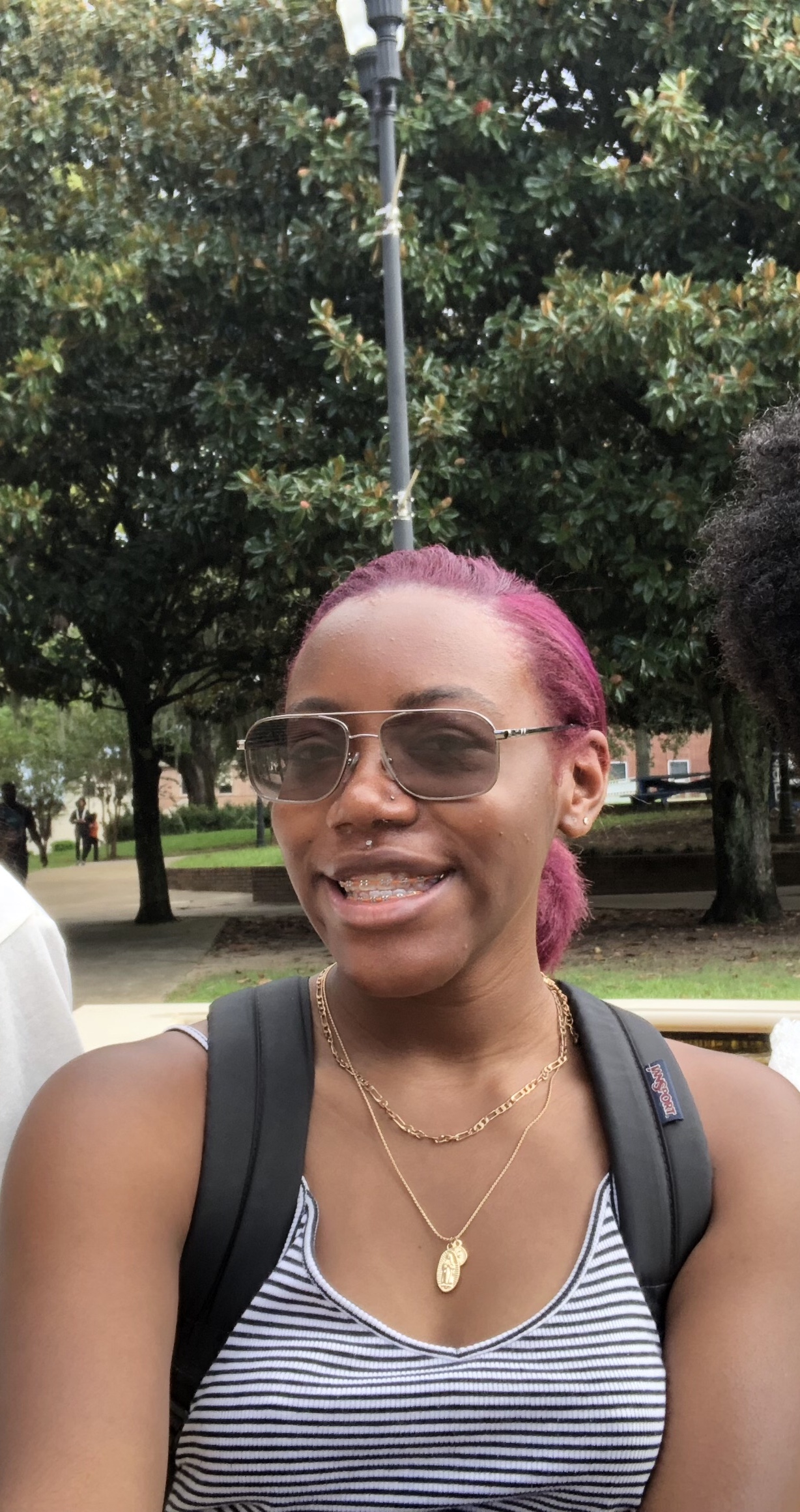
Wendy’s Story: I learned English at two or three and Garifuna throughout my upbringing. I learned some Garifuna throughout my upbringing but understood around the age 17. I think it is important for people of color to learn more than one language so that we can communicate and appreciate other cultures in more than one aspect. Communication transcends so much.
There is a stigma that a lot of minorities do not speak other languages, but the problem is that resources are not easily available for minorities. I think we can fix this by creating more community centers where people can fully integrate with others of different cultures/languages in a level that relates the lessons back to the people.
My advice for anyone wanting to learn languages outside their culture/race is to immerse yourself completely in the culture. Appreciating and constantly keeping the language alive in usage.
MEET RHODE
HAITIAN / DOMINICAN / CUBAN
Languages: Spanish, Creole. French and English

Rhode’s Story: My first languages were Creole and English at the same time. I was born knowing Creole and English I picked up on French and Spanish growing up from my family, my church, always listening to Spanish or Haitian music and watching movies either in French or Spanish.
I think it is important for people of color to learn more than one language because I feel like because we are already being judged by the color of our skin so it’s nice to have something to bring to the table.
So when people look at us they don’t just see the stereotypes they have already made up about us in their mind. I believe that there’s a stigma that minorities don’t speak English or are not as literate in English, and because of that look at minorities as less educated. In order to learn a language outside of your culture is too surround yourself with that language by watching movies in that language, or listening to music or reading books and talking to people in that language if possible and follow social media pages that are in that language.
@rhode.reine
MEET GABRIELA
DOMINICAN / AMERICAN
Languages: Spanish, English, and Korean
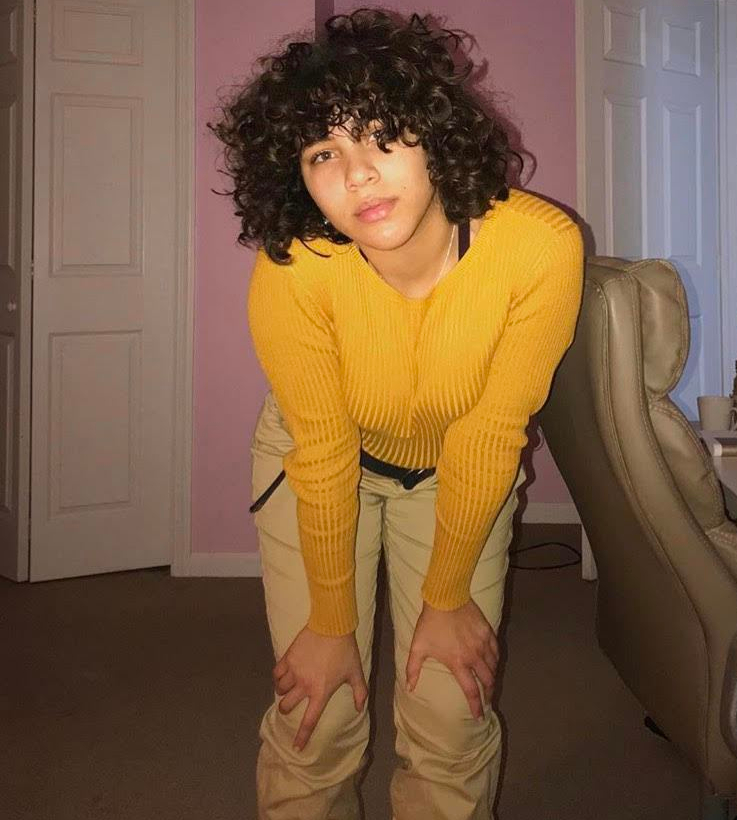
Gabriela’s Story: Spanish was technically my first language, but I had to relearn it after my school asked my parents to only speak English around me so I could understand it. Then I learned Korean on my own through self-study one summer.
I think it’s important [ to learn other languages ] because it provides more opportunities when it comes to communication with people of other nations and in jobs where being multilingual is beneficial.
I do think minorities are often underestimated when it comes to their language capabilities. I think this can be fixed by having minorities who are multilingual more commonly portrayed in the media and high positions
There’s a ton of online resources, books, and websites that can help you learn your chosen language. Take advantage of them! It also doesn’t hurt to have a buddy to practice with who speaks the language you’re learning.
@gabstopit
MEET KATIA
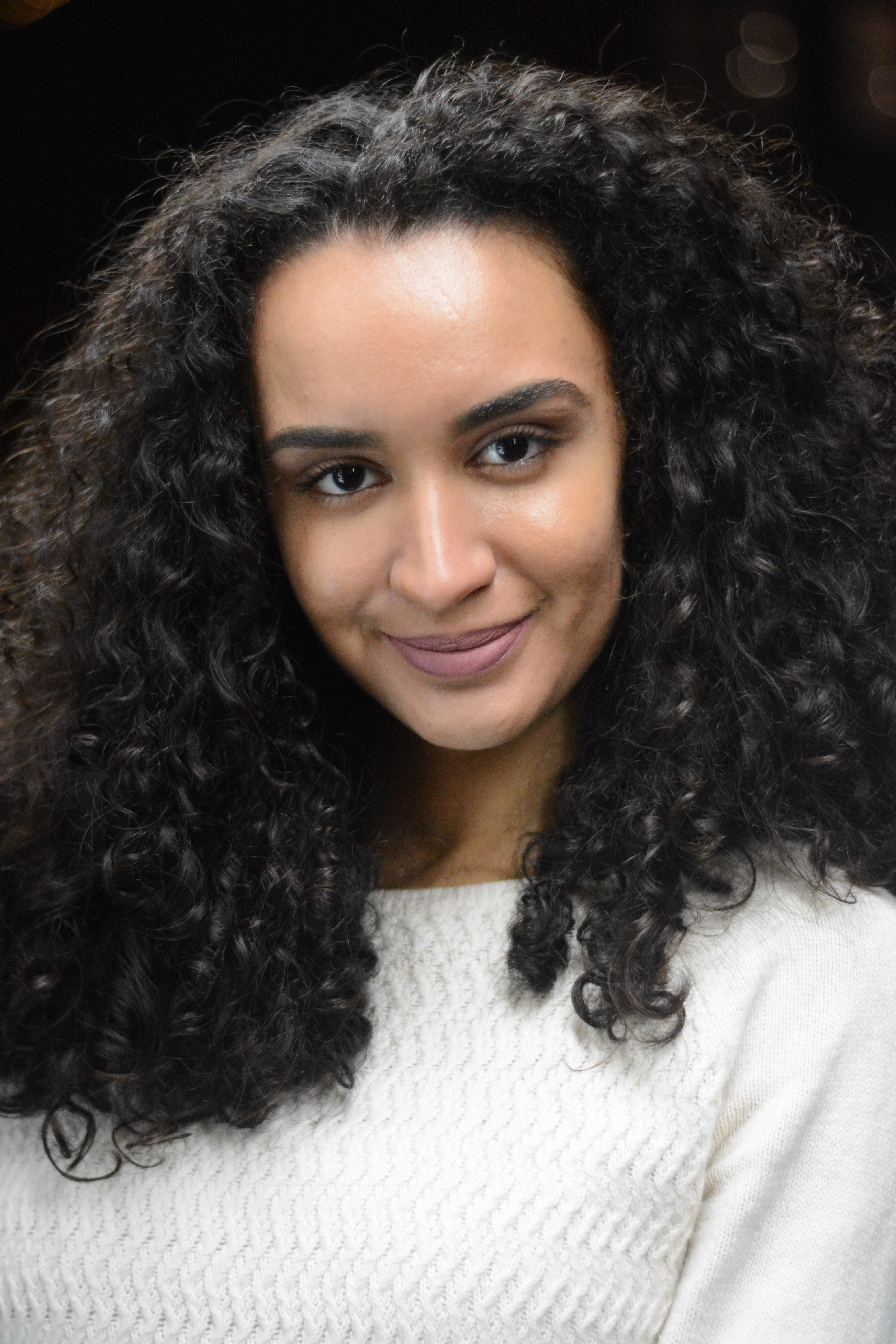
Katia’s Story: My mother taught me Spanish and I spoke it with her and my grandparents. This was my first language and the only language I spoke until my siblings were born. Because my siblings were learning English, I stopped speaking Spanish and started speaking English. I had completely forgotten how to speak Spanish. I remember going to Puerto Rico for the first time I could remember (2002).
I stood with family and felt embarrassed that I couldn’t speak Spanish; that I considered myself Puerto Rican, yet I couldn’t speak Puerto Rico’s most widely spoken language. It was in middle school that I started to slowly reacquire Spanish because my school was in a very Spanish-speaking neighborhood; most of my classmates were bilingual English-Spanish speakers, and I was required to take Spanish as a “foreign language” throughout middle and high school.
As for Italian, my father mostly worked at least 6 days a week. He wasn’t really around to teach us Italian. I do remember him sending my sister and me to an Italian-language learning program at the Catholic school where I went for Pre-K and Kindergarten. I remember finishing the first level and then when it was time for me to move up to the second level, I got very intimidated. I actually begged my parents and Italian teachers to hold me back and let me redo level one all over again. I was so scared that learning Italian was going to get harder. After re-completing level one, I didn’t go back to learning Italian until I was in college. To this day, I am so mad at myself that I held myself back.
Being fully proficient in Spanish was something that I wanted for myself so badly, that I decided to major in it. I figured it would help me learn how to write and read in Spanish on an academic level—and it most certainly did. I was also taking courses in Latin-American and Caribbean studies that further deepened my interest in becoming fluent in Spanish. Most of my classmates were Spanish-speaking. So on top of majoring in Spanish, I was hanging out a lot in Washington Heights, which is a Spanish-speaking neighborhood right next to my college. I started to travel to Puerto Rico, the Dominican Republic and Italy.
Learning more than one language only adds to you; it adds skill; it may open up opportunities for you. And if it’s a language that is a part of your culture, it’s personally enriching. Spanish and Italian are very important to me because these are the languages that 95% of my family speaks. These are the languages I needed to learn to get to know my grandparents’, my aunts and uncles, my cousins and listen to their stories and life experiences. They have shared with me their wisdom, their passions, their secrets; their faith; they have expressed sorrow, anger, sadness, and joy all in Spanish and Italian.
If I had never learned, I would have never been able to know them, my blood. And knowing them is also knowing a part of me. But I also understand that not every person of color even knows where their ancestors came from, never mind what languages they spoke. A lot of these histories were violently erased due to slavery, Americanization, colonization, etc. I think that nonetheless, all people of color should have an opportunity to learn a second language, whether or not it’s a language culturally significant to them.
I think there is definitely a stigma here in the United States that minorities born/raised here don’t speak their parents’ native languages. For example, when people say (and I admit I’ve said this as well), “How can you identify as Latinx and not speak Spanish?” It’s easy to say “Just go to school and learn” or “go travel to your parents or grandparents’ country” or “if I learned it; you can too”. But these are actually really problematic things to say because being able to go to school and receive an excellent education is a privilege. Being able to go and pay for college is a privilege. And being able to get up and go travel is a privilege. Now add being black or indigenous to that; add being undocumented. It’s a lot.
I think that we should have free language programs for minorities; especially for those that are economically disadvantaged. I think that learning a second language should be a requirement for all students and that all language departments in schools should receive a lot of attention; meaning that programs should invest in language-learning materials; take the students outside of the classroom, perhaps even abroad; pay instructors’ the salaries they deserve. I have seen language departments receive little to no attention, where administration only cares about students passing the class, not necessarily whether or not they actually learned the language/culture. I want to see passionate instructors. I want to see native instructors, meaning if we’re going to learn Spanish, let’s learn Spanish from somebody who is from a Spanish-speaking country or background. If we are going to learn Mandarin, let’s learn Mandarin from somebody who is from China or from a Chinese background. Representation matters.
We can also implement change starting in the household by teaching our children our native languages; by teaching them that it’s important to keep languages alive because it’s one of the ways we keep our grandparents or ancestors’ stories alive. It is a bridge that links our past with our present and our hearts with our motherland!
Learning a language is a commitment. It is especially hard if it’s a language that you are not immersed in. As I mentioned before, traveling and taking classes is not an option for everybody. If you do not have this option, immerse yourself online. There are plenty of online language-learning communities. See if you can download apps. If you live near a library, try to borrow some textbooks or even books written in the language you want; make sure that those books are in your appropriate level; if you have to start with children’s books, go for it! Watch YouTube videos. Listen to podcasts and follow along with a reading transcript if available. Download e-books if you can (I used Audible from Amazon to brush up on my conversational Italian and it helped tremendously and brought back some Italian that I had forgotten). Start listening to music in your language of interest. Read some online articles based on current events or on other topics that you’re interested in. Change the settings on your phone and social media to your desired language! You have to go all out if you want to achieve proficiency in a language that’s new to you. Do not be afraid to speak it out loud or to write to native speakers. You have to practice your oral and writing skills. You have to accept that you’re going to make mistakes and that you might be corrected in them. Try to find a native speaker who you feel comfortable going to whenever you have questions or whenever you want them to take a look at something you wrote. You have to be consistent in learning another language. Again, it is a commitment. If you don’t use it, you will surely lose it.
@katifiera

Thank you.
LikeLike
love that blog post.Very inspiring.
Check out my blog site
LikeLike